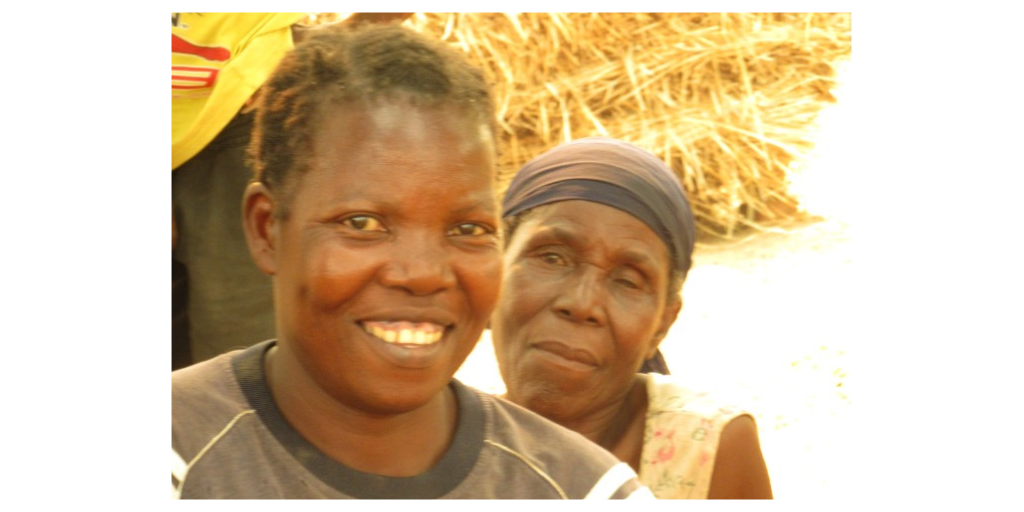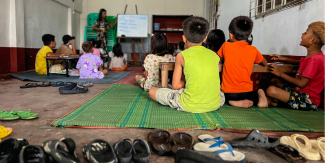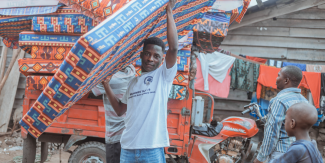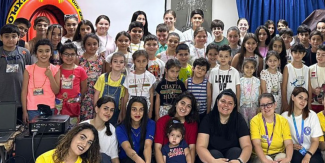NOVEMBER 4, 2022 · AMY HECKMAN
When Angela became pregnant at age 16, her life changed dramatically. The baby’s father denied he was responsible, and her parents refused to help her. She was unable to finish high school and graduate. “My parents could not accept me because I disappointed them while I was still in school,” Angela explains. Finding herself parenting alone without an education, Angela struggled to know how to provide for her son. She began to think of small ways to earn income and settled upon farming as one possible method.

However, growing food to eat and sell requires clean and reliable water. In Salima, Malawi, where Angela and her son live, there was no easily accessible clean water source. Some families dug their own wells but most lacked adequate shelters for the wells to prevent objects from contaminating the water. These open water sources were also breeding grounds for mosquitos, which led to elevated levels of malaria in the community. If people didn’t try to dig a well at home, they would travel to a nearby town to a water source that wasn’t reliably clean. That travel took precious time out of the day and often women and girls were the ones tasked with fetching water—leaving them less time to study or work.
Salima Church of the Nazarene wanted to send a signal to the community that their congregation was serious about cultivating relationships with their neighbors and working to improve their health. In partnership with Nazarene Compassionate Ministries Malawi, the church spearheaded a borehole well (a type of well that pulls up deep, clean groundwater from far below the surface) project that brought clean water to their property. Additionally, the project incorporated training for church and community members in WASH (clean water, sanitation, and hygiene) principles. In total, 30 women and 12 men went through trainings to ensure a large number of people knew how to manage and repair the well.
A nearby medical clinic tracked the impact of the well on community health. Incredibly, once the water source was open and being used, visits from sick people in Salima dropped by 83 percent, illustrating a dramatic decrease in waterborne illnesses.
Angela saw a change in her daily life once clean water was easily available to her and her son. “With the provision of this water well in our village, I have started growing vegetables and onions in small garden near my house,” she shared. “I always come early in the morning to fetch water.”
Angela is on a path to overcoming some of the difficulties she’s faced and is hopeful for a continually improving future. “I look forward to harvest time as I plan to sell to our local market. I [hope] to buy my own goat from the vegetables I sell. I thank Church of the Nazarene for the water well.”
Mwetheya, a member of the Salima church, sums up the impact of the well this way, saying, “This is a new church in our community with its own challenges as well. But they moved to provide the needs of the community. This helps us know that our hope should be in God alone. This borehole [well] symbolizes that Jesus of the Nazareth is the living water.”





